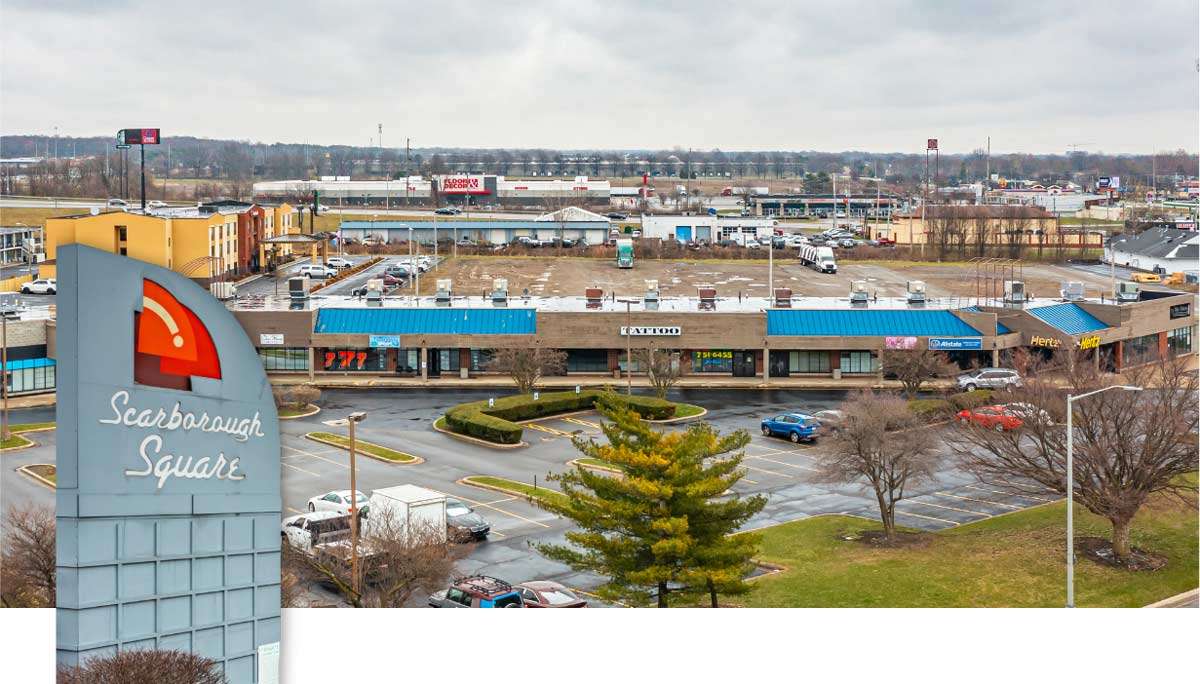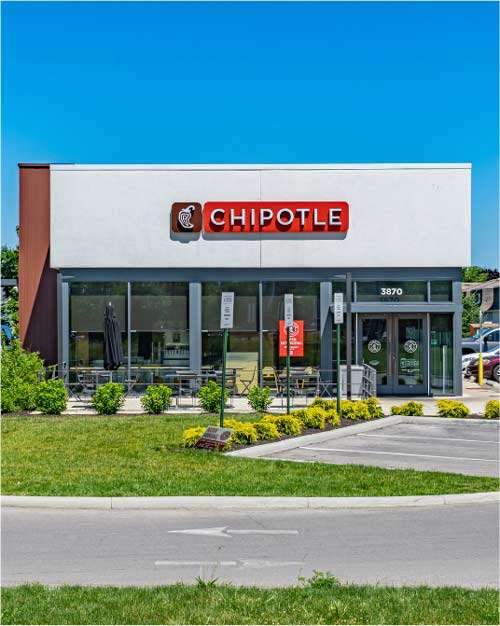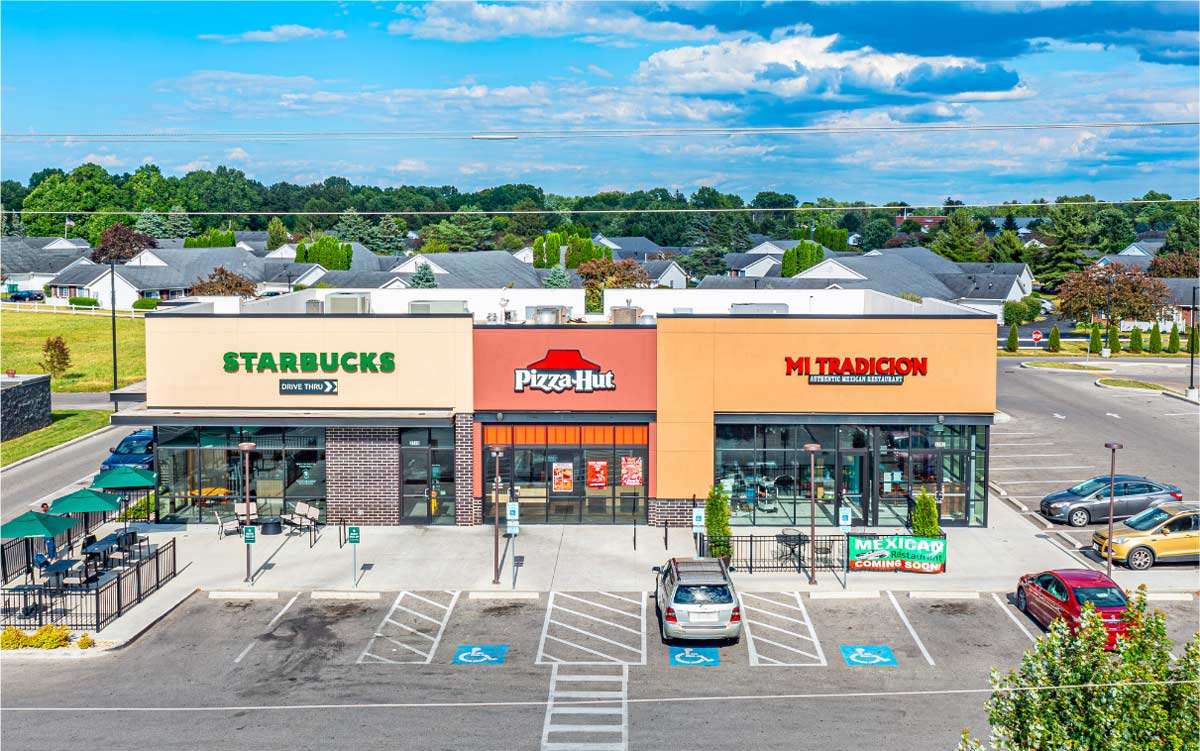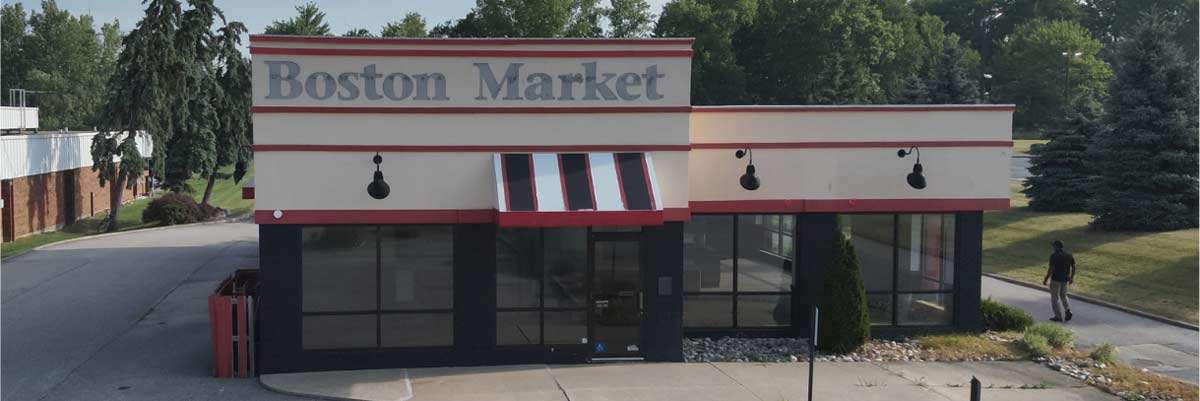Home & Commercial Inspections: For All Your Commercial Inspections
Understanding Double Net (NN) and Triple Net (NNN) Leases in Commercial Real Estate
Understanding Double Net (NN) and Triple Net (NNN) Leases in Commercial Real Estate
Evaluating commercial real estate leases demands detailed knowledge about distinct lease formats since these documents determine which costs belong to landlords and tenants. Commercial real estate owners use Double Net (NN) and Triple Net (NNN) leases as dominant lease structures. Each lease structure determines how much responsibility tenants need to handle, which directly affects their operational expenses, long-term costs, and maintenance duties.
Real estate owners can utilize NN and NNN leases to shift specific costs to tenants without giving up their management authority over their property assets. Before entering lease agreements, tenants must study these agreements to measure their economic value and operational feasibility. Before signing a lease, persons on both sides must examine property upkeep requirements, tax payments, and insurance expenses. Neglecting this evaluation may cause disputes about money or additional monetary costs for both parties.
During leasing operations, owners must perform Property Condition Assessments according to ASTM 2018 standards. The Property Condition Assessment confirms that lessees and owners receive comprehensive knowledge of property financial aspects and physical characteristics before lease commitments are made. The Property Condition Assessment enables tenants to discover maintenance pitfalls while allowing the landlords to see into property sustainability; thus, both parties are protected from unexpected repair bills.
An investor seeking property leasing and a business owner pursuing commercial leasing must fully understand Double Net and triple-net agreements. Home Commercial Inspections compares the fundamental characteristics of lease structures through which it evaluates property inspection importance and details party responsibilities during and after lease conclusion.

What Are Double Net (NN) and Triple Net (NNN) Leases?
Knowing what separates NN and NNN leases proves essential for parties operating as landlords and tenants. The various expenses related to properties, including taxation insurance and upkeep responsibilities, are determined through these leasing contracts. Landlords and tenants establish financial stability through leasing agreements by precisely establishing their responsibilities.
Triple Net Lease (NNN)
The tenant takes charge of nearly all financial responsibilities related to the property under the terms of a Triple Net Lease (NNN). Under NNN leases, the landlord transfers significant operating expense costs to tenants, who become responsible for paying these costs. The tenant in a typical triple net lease deducts payment for property taxes and building insurance while financing maintenance costs.
The tenant takes responsibility for paying three net expenses as part of property tax assessments performed by local entities and the state government.
The tenant buys building insurance that protects against physical property losses and lawsuit claims.
The tenant must handle all property maintenance work and building repairs on the property’s structural and non-structural parts.
Through this lease arrangement, landlords achieve financial goals and avoid substantial management tasks. The tenants’ expenses enable landlords to gain consistent income streams while spending little on operations maintenance. NNN leases function as the preferred option for retail operations, franchise establishments, and properties hosting one and only tenants.
The tenant obtains elevated property control when they sign an NNN lease. Leasors must thoroughly evaluate their complete occupancy costs precisely when considering an agreement because these arrangements entail primary financial responsibilities.

Double Net Lease (NN)
The Double Net Lease (NN) features less tenant obligation than an NNN lease due to its distribution of property tax and insurance payment requirements. In an NN lease agreement, the tenant must handle property taxes and building insurance expenses while the landlord retains legal duty for structural maintenance and significant repairs. The arrangement finds a middle ground between gross leases with building expenses paid by the landlord and NNN leases without landlord outlays.
NN leases operate within multi-tenant buildings, including office buildings and shopping centers, so landlords take care of structural maintenance. At the same time, tenants cover expenses that pertain to their leased property areas. The property ownership responsibilities shifted from tenants to landlords under this lease structure, which helps protect tenants against big-scale maintenance costs.


Importance of Property Condition Assessment (PCA)
Before signing a lease agreement, landlords and tenants must conduct a Property Condition Assessment (PCA) to evaluate the property’s current state and anticipate future maintenance costs. A PCA is a detailed inspection process that provides valuable insights into the building’s condition, identifying potential risks, repair needs, and long-term financial obligations.
Key Benefits of Conducting a PCA

Clarifies Lessee/Leasor Responsibilities
A Property Condition Assessment (PCA) clearly delineates the responsibilities of both the lessee and the leasor regarding various aspects of property maintenance. By specifying which party is accountable for specific maintenance tasks and operational responsibilities, a PCA helps to minimize the risk of disputes and misunderstandings between the parties involved. This clarity fosters a smoother management process and ensures that property upkeep is handled efficiently and in accordance with the terms of the lease agreement.

Ensures Transparency in Lease Terms
Reviewing the lease terms in the context of the property's actual condition ensures both parties fully understand what they agree to.

Assists in Financial Planning
A PCA provides a detailed report on the property's condition, helping landlords and tenants budget for short-term and long-term maintenance expenses.

Follows ASTM 2018 Standards
These industry standards ensure a thorough and legally sound property assessment.
Role of Inspections in Lease Agreements
Regular property inspections are critical in commercial lease agreements, ensuring landlords and tenants fulfill their obligations throughout the lease term. Inspections help identify maintenance needs, assess structural integrity, and prevent disputes over repair responsibilities.

Key Areas to Inspect Before Signing a Lease

Structural Integrity
Assessing the foundation, roof, walls, and floors ensures the building is structurally sound.

Equipment and Fixtures
Ensuring installed equipment, such as elevators and fire suppression systems, are in good condition.

Mechanical Systems
Evaluating HVAC, electrical wiring, and plumbing systems for efficiency and safety.

Deferred Maintenance Issues
Identifying pre-existing maintenance problems and determining responsibility for repairs.
Routine Inspections During the Lease Term
Routine inspections help prevent minor maintenance issues from becoming major problems. Many commercial leases and property insurance require periodic inspections to ensure tenants properly maintain the property.
End-of-Lease Inspections and Condition Reports
At the end of a lease, an inspection determines whether the tenant has fulfilled their obligations to maintain the property. A well-documented inspection report from the beginning of the lease can protect both parties from disputes.
At the end of a lease, tenants are typically required to return the property in its original condition, except for everyday wear and tear.
A well-documented property condition report from the beginning of the lease is essential in preventing disputes over restoration costs.

Restoring Modifications
Tenants may be required to restore structural modifications unless otherwise agreed upon in the lease.

Cleaning and Minor Repairs
Ensuring the space is left clean and functional.

Equipment and Fixture Maintenance
Servicing leased equipment and installed fixtures.

Handling Major Structural Repairs
Landlords are responsible for foundation issues, roof leaks, and major plumbing failures.

Assessing Damages
Conducting inspections to determine if any damages exceed normal wear and tear.

Preparing for New Tenants
Ensuring the property is leasable before a new occupant moves in.
Thermal imaging is vital in commercial real estate inspections since it detects hidden structural issues. With advanced infrared technology, we expose hidden moisture, insulation failure, and electrical issues that would otherwise be undiscoverable. These inspections secure energy savings and provide safe occupancy in the structures.
For properties with solar panels, thermal imaging is critical in measuring panel efficiency and detecting any malfunction. Using a combination with photogrammetry, we offer a full assessment of commercial properties so that they comply with safety and performance requirements.
- NNN leases require tenants to cover property taxes, insurance, and maintenance.
- NN leases involve shared responsibilities, with landlords handling structural maintenance.
- Before signing a lease, a PCA helps evaluate the property’s condition.
- Regular inspections help maintain property value and prevent disputes.
- Clearly defined lease terms reduce legal conflicts and financial risks.
A solid understanding of Double Net (NN) and Triple Net (NNN) leases is essential for success in commercial real estate. Conducting a PCA before signing a lease ensures that both parties understand the structural integrity, maintenance needs, and long-term financial commitments associated with the property. Regular inspections throughout the lease term help prevent costly disputes and maintain the property’s value.
By proactively addressing lease responsibilities, property maintenance, and financial planning, commercial property stakeholders can avoid legal disputes, minimize financial risks, and create sustainable leasing agreements. Our team specializes in thorough assessments in Columbus, Dayton, Athens, Toledo, Cleveland, Cincinnati, Indianapolis, and Louisville for those seeking professional commercial property inspections. Our expertise can help you make informed leasing decisions, ensuring your investment is well-protected.

Frequently Asked Questions (FAQ)
1. What is the difference between a double net and a triple net lease?
A double net lease requires tenants to pay property taxes and insurance while the landlord handles maintenance. A triple net lease shifts all financial responsibilities to the tenant, including taxes, insurance, and maintenance.
2. Who is responsible for roof repairs in a triple-net lease?
In most cases, the tenant is responsible for all maintenance and repairs, including the roof, unless specified otherwise in the lease agreement.
3. Why is a property condition assessment important for commercial leases?
A PCA helps landlords and tenants assess the property’s condition, identify potential repair costs, and clarify financial responsibilities before signing a lease.
4. How often should a commercial property be inspected?
Conducting annual property inspections to assess maintenance needs, ensure lease compliance, and prevent major repair costs is recommended.
5. What are the benefits of commercial property inspections?
Regular inspections ensure that maintenance responsibilities are met, reduce financial disputes, and help preserve property value.
6. Can a tenant negotiate lease responsibilities?
Yes, tenants can negotiate specific terms, such as capping maintenance costs or adjusting financial responsibilities. A well-structured lease should clearly outline these details.
7. Why is a property condition assessment important before signing a lease?
A PCA helps tenants and landlords understand the property’s current condition, plan for future maintenance, and clarify financial responsibilities to avoid unexpected expenses.
8. How can I find a reliable commercial property inspection service?
If you’re looking for commercial property inspections in Columbus, Dayton, Athens, Toledo, Cleveland, Cincinnati, Indianapolis, or Louisville, our professional team offers thorough assessments to help you make informed leasing decisions.
By understanding these key aspects of NN and NNN leases, both parties can negotiate fair lease terms, plan for long-term maintenance, and protect their financial interests. Thorough property condition assessments and regular inspections ensure that responsibilities are upheld, helping avoid costly legal disputes.

